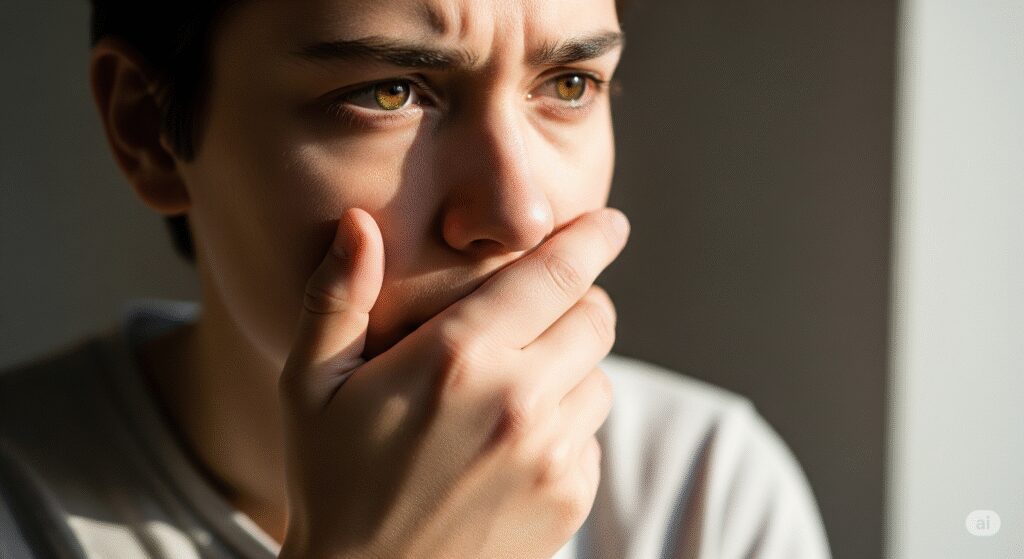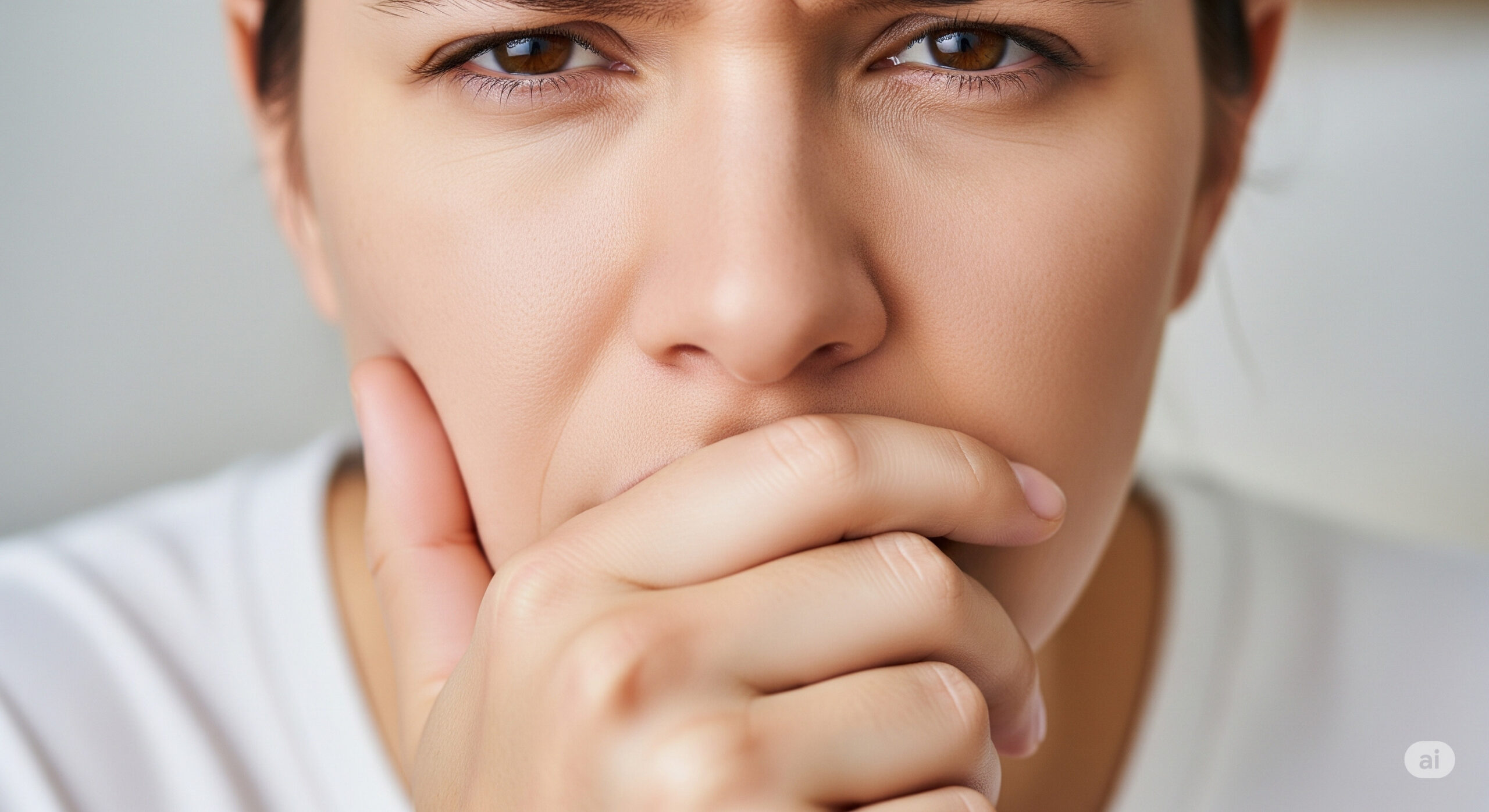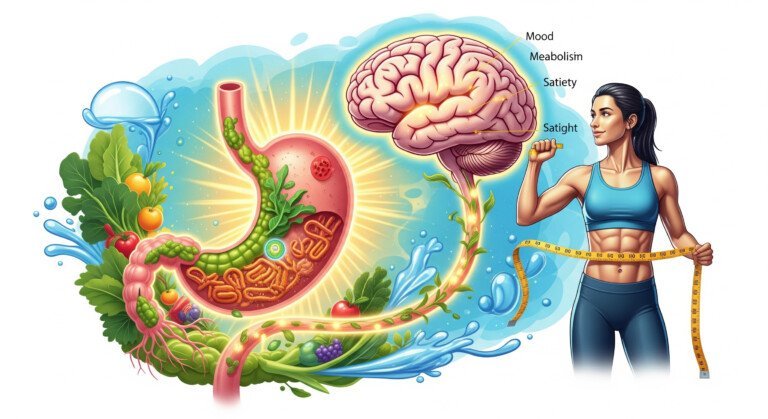Why Does the Roof of My Mouth Hurt? 5 Shocking Causes
If you’ve ever wondered, “Why does the roof of my mouth hurt?” or felt an uncomfortable, sudden pain at the top of your mouth when eating, you’re not alone. It’s a common issue that many people experience at some point. Maybe you’ve had a run-in with something too hot, or perhaps the pain seemed to come out of nowhere, leaving you frustrated and a bit concerned. The roof of your mouth is a delicate area, and pain here can result from a variety of reasons. Whether it’s a simple irritation or something more serious, understanding the causes and learning how to manage them can bring you relief.
In this article, we’ll explore 5 potential reasons why the roof of your mouth hurts, what might be happening when you experience pain while eating, and how to soothe the discomfort. We’ll also cover when it’s time to see a doctor and share some natural relief tips to help you feel better.

1. Common Reasons for Roof of Mouth Pain
Pain at the roof of your mouth can arise from various causes, ranging from something as simple as a minor burn to more complicated health issues. Let’s break down the most common reasons why the roof of your mouth hurts.
Pain in Roof of Mouth from Burns or Hot Food
One of the most common reasons for discomfort in the roof of the mouth is a burn from hot food or drinks. Ever grabbed a piping-hot slice of pizza or gulped down a too-hot cup of coffee? The roof of your mouth is quite sensitive, and a sudden burn can cause sharp pain and even swelling.
This kind of pain is usually temporary, but it can be quite uncomfortable. If you’re experiencing a burn on the roof of your mouth, consider applying a cold compress or rinsing your mouth with cool water to soothe the area. Over-the-counter topical creams like Aloe Vera gel can also help promote healing.
Roof of My Mouth Hurts Due to Dehydration
Another common cause of pain in the roof of the mouth is dehydration. When your body is dehydrated, your mouth may become dry, and the tissues in the roof of your mouth can become irritated. Dehydration can also lead to other uncomfortable symptoms, like dry throat, cracked lips, and fatigue. If you’re not drinking enough water or consuming hydrating foods, this could be the culprit.
Try increasing your water intake, and consider incorporating hydrating fruits like cucumbers, melons, and oranges into your diet. If the pain persists despite staying hydrated, it could be worth looking into other potential causes.
Top of Mouth Pain Caused by Allergies
Allergies, particularly seasonal allergies, can trigger a variety of symptoms, including pain in the roof of your mouth. If you suffer from allergies, you may notice that the pain worsens when pollen counts are high or during certain times of the year. The inflammation caused by allergic reactions can affect the soft tissues of the mouth, leading to discomfort.
If your mouth pain seems linked to allergies, try to pinpoint what’s causing the flare-up. Over-the-counter antihistamines or nasal sprays may help reduce inflammation and relieve symptoms.

2. Pain When Eating — What It Means
Many people experience pain in the roof of their mouth while eating. Whether it’s a mild ache or sharp pain, understanding why this happens can help you manage it.
Roof of Mouth Hurts When Eating
If you notice that the roof of your mouth hurts when eating, the cause may be related to the food you’re consuming. Spicy, acidic, or hard foods can irritate the delicate tissue at the top of your mouth. Certain ingredients, such as citrus or vinegar, can cause a burning sensation. Even foods with rough textures, like crackers or chips, can scrape or cause friction that leads to soreness.
To reduce the chances of this type of pain, try to avoid foods that are overly spicy, acidic, or hard for a while. Opt for softer, more soothing options that won’t irritate the area.

Pain in the Roof of the Mouth When Eating
If the pain is persistent and only occurs during meals, it could be a sign of something else going on. For example, you may have an infection or an issue with your dental health, such as a cavity near the roof of your mouth. Gum issues or tooth sensitivity could also cause referred pain that feels like it’s coming from the roof of your mouth. If the pain is severe or accompanied by swelling, it’s worth visiting a dentist for a thorough check-up.

3. Inflammation & Other Symptoms
Another potential cause of pain in the roof of your mouth is inflammation. This can occur for several reasons, and the pain is often accompanied by other symptoms, such as redness, swelling, or discomfort when swallowing.
Roof of the Mouth Inflamed
If the roof of your mouth is inflamed, you may notice redness or a swollen feeling. This can happen as a result of infections, such as a viral infection like a cold or the flu. Inflammation can also occur as a result of certain oral conditions like stomatitis or canker sores.
The good news is that inflammation in the roof of your mouth typically resolves with proper care. You can try warm salt water rinses, maintaining good oral hygiene, and avoiding any triggers like spicy foods to help reduce inflammation.
Why Is the Roof of My Mouth Sore?
A sore roof of the mouth is often a result of inflammation or irritation, but it could also be an indicator of something more serious, like a bacterial infection. If you have a sore spot that doesn’t heal after a few days or is accompanied by fever or pus, it’s important to seek medical advice.

4. When to See a Doctor
Most of the time, pain in the roof of your mouth isn’t cause for serious concern and can be treated at home. However, there are situations where you should definitely see a doctor or dentist.
Why Would the Roof of My Mouth Hurt?
If the pain in the roof of your mouth is severe, constant, or accompanied by other concerning symptoms (like fever, difficulty swallowing, or swollen glands), it’s time to get medical advice. Persistent pain may indicate an underlying health issue that needs professional attention. A doctor or dentist can help you pinpoint the cause and provide the appropriate treatment to alleviate the pain.

Pain on Roof of Mouth — When to Seek Medical Help
While most mouth pain can be managed with at-home remedies, it’s essential to consult a healthcare provider if the pain is accompanied by other symptoms, such as:
- Persistent sores or blisters
- Difficulty swallowing or breathing
- A fever or swollen lymph nodes
- Unexplained weight loss
If you’re unsure whether you need to seek medical help, it’s always better to err on the side of caution and have a professional evaluation.

5. Quick Relief Tips
While you’re waiting for your pain to subside, there are a few quick relief tips you can try at home to ease discomfort. Here are some of the most effective remedies.
- Hydrate, Hydrate, Hydrate
Drink plenty of water to keep your mouth moist and help flush away irritants that may be causing discomfort. - Salt Water Rinse
A salt water rinse can help reduce swelling and promote healing. Mix half a teaspoon of salt with warm water and swish around your mouth for 30 seconds. - Avoid Spicy and Hot Foods
Steer clear of foods that could further irritate the roof of your mouth, such as spicy dishes, hot drinks, or foods with acidic ingredients. - Use Aloe Vera Gel
Aloe vera has natural soothing properties that can help cool down any burns or irritated spots in your mouth. - Try Over-the-Counter Pain Relief
If the pain is persistent, over-the-counter pain relievers like ibuprofen or acetaminophen can provide temporary relief.

Conclusion
Pain in the roof of your mouth can be uncomfortable, but with a bit of patience and the right remedies, you can find relief. Whether it’s from a simple burn, dehydration, or something more complex, knowing the causes and treatment options can help you take control of your symptoms.
If you’re dealing with recurring or persistent pain, don’t hesitate to explore additional resources on mouth health or book a consultation with a healthcare professional. At ThriveInSerenity.com, we’re here to support your well-being every step of the way.

FAQ
1. Why does the roof of my mouth hurt?
Pain in the roof of your mouth can be caused by various factors, including burns from hot foods, dehydration, allergies, infections, or even dental issues. It’s important to evaluate the other symptoms you’re experiencing to determine the cause.
2. Is top of mouth pain serious?
Most of the time, pain in the roof of your mouth is not serious. However, if the pain is severe, persistent, or accompanied by fever or difficulty swallowing, it’s important to consult a doctor or dentist.
3. What causes pain in the roof of my mouth?
Pain in the roof of the mouth can stem from burns, dehydration, allergic reactions, infections, or even dental issues like cavities or gum disease.
4. Why does my roof of the mouth hurt when I eat?
It’s not uncommon to feel pain in the roof of your mouth while eating, especially if you’ve had something too hot, spicy, or acidic. Even crunchy foods can cause irritation if they scrape against the sensitive tissue at the top of your mouth. If the pain lingers or becomes a frequent issue, it could be a sign of something like a mild infection or even dehydration. Keeping an eye on the types of foods that trigger the pain can help you avoid further discomfort.
5. Could stress be causing the pain in the roof of my mouth?
Yes, stress can actually contribute to pain in the roof of your mouth! When we’re stressed, we might unknowingly clench our jaw or grind our teeth, which can cause tension in the muscles around the roof of the mouth. This tension might also lead to a sore or irritated feeling in the area. If you think stress is the culprit, finding ways to relax, like deep breathing exercises or meditation, could help alleviate the pain.
Disclaimer:
This post may contain affiliate links. If you purchase through them, we may earn a small commission at no extra cost to you. Also, this content is for informational purposes only and does not substitute professional medical advice.




